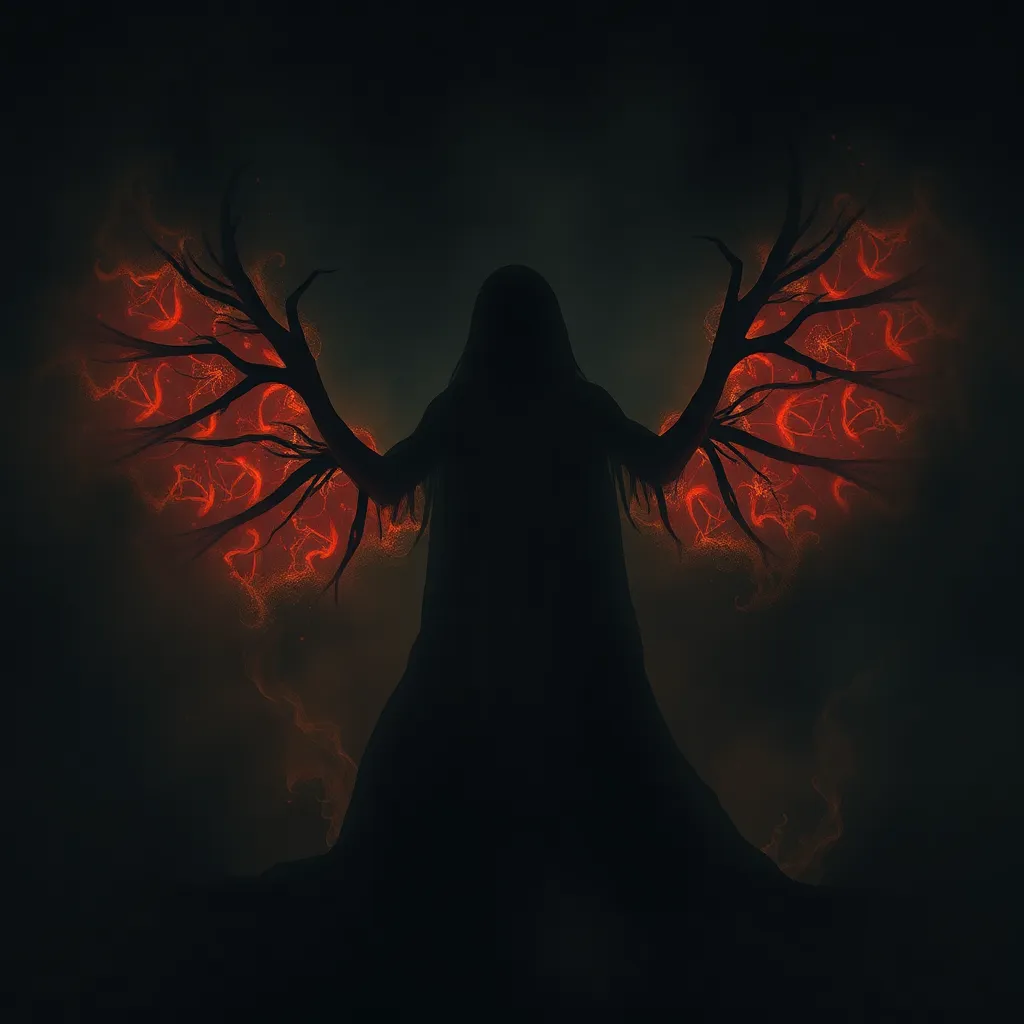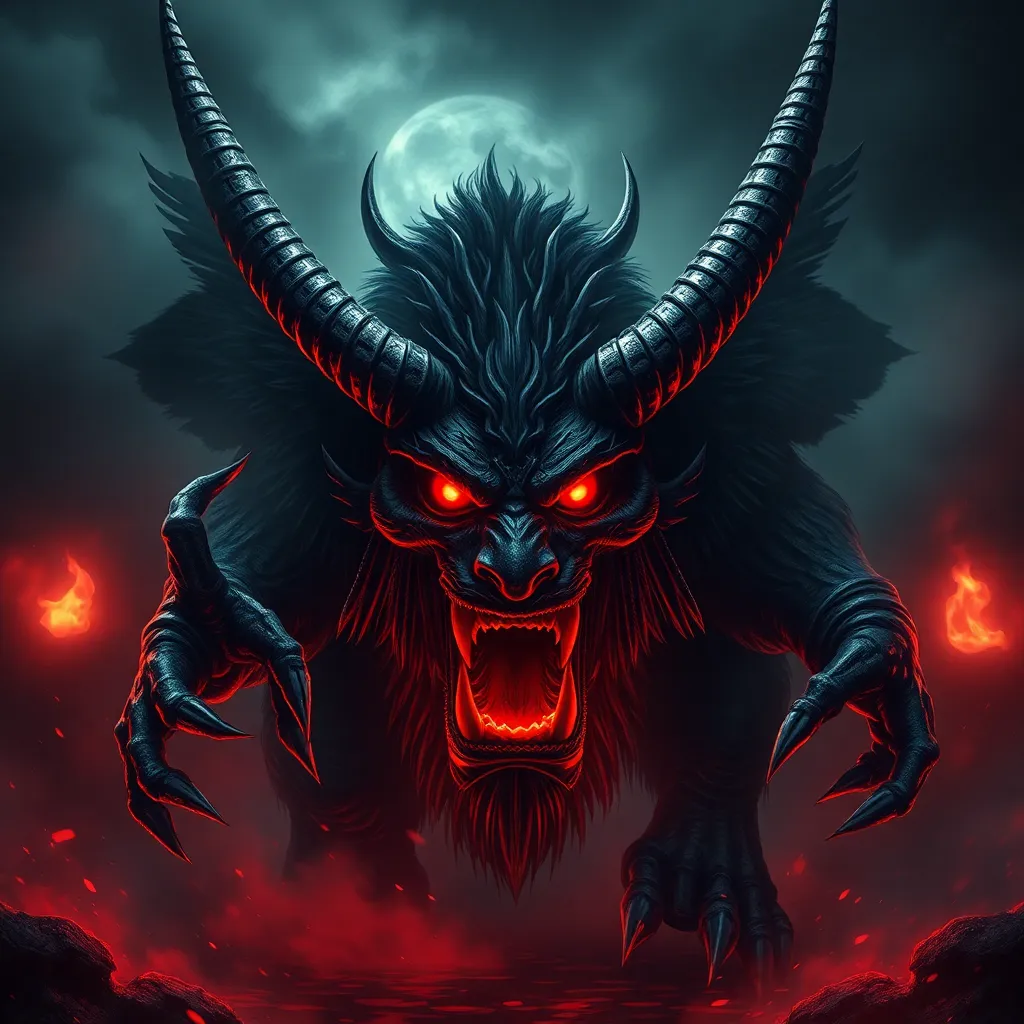The Dybbuk’s Shadow: Exploring the Darker Side of Dybbuk Possession
I. Introduction to the Dybbuk
The term “Dybbuk” originates from the Hebrew word “dibbuk,” which means “to cling” or “to cling to.” In Jewish folklore, a Dybbuk is believed to be the wandering spirit of a dead person who attaches itself to the body of a living person, often with malicious intent. This phenomenon has deep roots in Jewish mysticism, particularly in the Kabbalistic tradition.
Historically, Dybbuk possession has been a source of fear and fascination within Jewish communities. It is often associated with themes of loss, grief, and unfinished business. The stories of Dybbuks serve as moral lessons, warning against the dangers of neglecting spiritual matters. This article aims to explore the mythology, signs and symptoms of Dybbuk possession, the role of exorcism, psychological perspectives, modern media representations, and the intersection of belief and experience.
II. The Mythology of the Dybbuk
Dybbuks are steeped in myth and tradition. According to Jewish folklore, a Dybbuk is a disembodied soul that possesses a living person, typically someone who has unresolved issues or has committed sins during their lifetime. This belief is not merely a cautionary tale; it reflects the cultural and spiritual anxieties of the Jewish people.
- Traditional beliefs surrounding the Dybbuk: Many believe that a Dybbuk can possess individuals who have strayed from religious observance or have engaged in immoral behavior.
- Cultural significance in Jewish communities: The Dybbuk serves as a metaphor for the weight of one’s past actions and the importance of spiritual integrity.
- The Dybbuk in literature and arts: One of the most famous representations of the Dybbuk is in S. Ansky’s play “The Dybbuk,” which explores themes of love, loss, and the supernatural.
III. Signs and Symptoms of Dybbuk Possession
Identifying Dybbuk possession can be complex, as the signs may resemble other psychological conditions. Common manifestations include:
- Unexplained changes in personality or behavior
- Voices or sounds emanating from the possessed individual
- Physical symptoms such as convulsions or paralysis
- A strong aversion to religious symbols or practices
The debate over whether these manifestations are psychological or spiritual in nature continues. Some scholars argue that Dybbuk possession can be interpreted through a psychological lens, while others maintain that it is a genuine spiritual phenomenon. Personal accounts of Dybbuk possession often blur these lines, with many reporting profound experiences that challenge their understanding of reality.
IV. The Role of Exorcism and Rituals
Exorcism of a Dybbuk is a significant aspect of addressing the phenomenon. Traditional practices vary among Jewish communities but often include:
- The recitation of specific prayers, such as the “Shma Yisrael”
- Use of holy objects, including the Torah and the “Shamash,” a candle used in rituals
- Ritualistic cleansing and the involvement of a rabbi or spiritual leader
The “Shamash” plays a vital role in these rituals, symbolizing the light that dispels darkness. Case studies of Dybbuk exorcisms reveal a range of outcomes, from successful restorations of the individual’s health and peace to cases where the possession persists, highlighting the complexity of spiritual intervention.
V. Psychological Perspectives on Dybbuk Possession
From a psychological perspective, Dybbuk possession can be analyzed through various lenses:
- Trauma and mental health: Some individuals may exhibit symptoms of possession as a response to unresolved trauma or mental health issues.
- Belief systems: The cultural and religious beliefs surrounding the Dybbuk can significantly influence an individual’s perception and experience of possession.
- Psychological phenomena: Concepts such as dissociation and possession trance provide frameworks for understanding these experiences.
Ultimately, the interplay between belief and psychological phenomena suggests that Dybbuk possession may not be purely spiritual or purely psychological, but rather a complex interaction of both realms.
VI. The Dybbuk in Modern Media and Pop Culture
In recent years, the Dybbuk has found its way into modern media and popular culture. Its representation in film and television has contributed to a resurgence of interest in this ancient folklore. Notable examples include:
- The 2012 film “The Possession,” which centers around a Dybbuk box and its malevolent spirit.
- The portrayal of Dybbuk themes in series such as “Supernatural” and “The Haunting of Hill House.”
- Literary works that revisit the Dybbuk narrative, often blending horror with cultural commentary.
These modern interpretations have shaped public perception and understanding of Dybbuks, often sensationalizing the phenomenon while also introducing it to new audiences.
VII. The Intersection of Belief and Experience
The experience of Dybbuk possession highlights the profound influence of cultural beliefs on personal experiences. The role of community and support systems is vital in these narratives, as individuals often seek validation and assistance from their cultural or religious communities. This intersection raises important questions about:
- The nature of belief and its power to shape experiences
- The communal aspect of spiritual crises and the importance of shared narratives
- Exploring the boundaries between reality and folklore in personal testimonies
VIII. Conclusion and Reflection
In summary, the exploration of Dybbuk possession reveals key insights into the human experience of fear, loss, and the search for meaning. Dybbuk narratives remain relevant today, reflecting ongoing struggles with mental health, spirituality, and cultural identity.
The enduring fascination with the Dybbuk serves as a reminder of the complexities of the human psyche and the power of belief, inviting us to reflect on our own experiences and the narratives that shape our understanding of the world.



